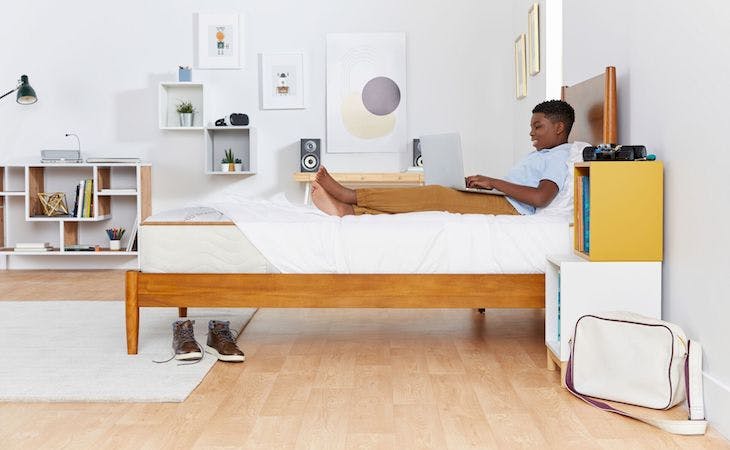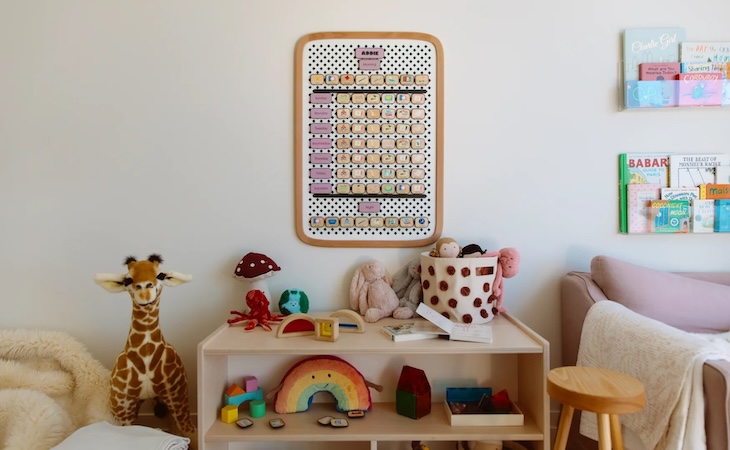Adolescents, who typically need more sleep than adults, routinely don’t get enough of it. Staying up late to study and getting up early for class might seem like a simple reality of the teenage years, but sleep deprivation among budding adults has real consequences. It contributes to anxiety, depression, poor eating, and an increased risk of both car crashes and injuries.
There are also biological reasons why teens have a hard time getting enough sleep. During the teenage years, the body clock shifts much later, making it hard for older kids to fall asleep much before 11 p.m.
But then they have to be up early for school (even though the American Academy of Pediatrics recommends that middle and high school start later, the majority of schools still start before 8:30 a.m.). While some teens may be able to sleep in later if they’re doing virtual school this year, they might also be tempted to stay up later—so that doesn’t necessarily guarantee they’ll get adequate shut-eye.
Improving your teenager’s sleep
There is one big way you can help improve a teenager’s sleep, though. According to a recent study out of the University of Rochester, an enforced bedtime can help a teenager sleep more, be more alert during the day, and lower the risk of depressive symptoms.
It might be a perennial piece of sleep advice, but it’s an important one. And unfortunately, more than half of the parents in that study reported that they didn’t enforce specific bedtime rules.
“A bedtime routine helps the brain ‘turn off’ and the body slow down and prepare for sleep,” explains Lynelle Schneeberg, PsyD, clinical psychologist and fellow of the American Academy of Sleep Medicine. This then helps teens log those eight to nine hours of sleep they need every night.
And that’s important. “Growth hormones are released at night, and a well-rested teen is a safer driver, a better planner and decision-maker, is less anxious and depressed, retains new material better, and more,” Schneeberg says.
Bedtime routine for teenagers
Fortunately, making and implementing a set bedtime and a routine—even for independent teenagers—is possible. Here are four ways to put together a night routine for teenagers.
Zone off the bedroom
“Teens often use their bedroom for many things,” says Schneeberg—but she suggests having a teen divide their room into three different areas: one for sleeping, one for relaxing, and one for studying. “This will help keep the bed associated only with sleeping and not with screens, video games, phone use, homework, and more.” (Redecorating time, anyone?)
Related: The best mattress for teenagers
Encourage soothing wind-down activities
A good night routine for teenagers might involve putting away homework, having a snack, taking a shower, putting on pajamas, and washing up, explains Schneeberg. (Taking a bath or shower also leaves extra time in the morning which could help a teen get more sleep.)
“Conclude the bedtime routine by doing something quiet and relaxing in bed until drowsy,” she suggests. “This could be reading, coloring, drawing, doing crosswords, listening to audiobooks, podcasts, or more.” This will help limit the amount of time your teen spends lying in bed awake. It’ll also help reduce anxiety over anything they might be worried about, including anxiety about being able to fall asleep.
You’ll also want to turn all of the lights in the room off except for reading light since light is one of the biggest stimulants for the body’s clock.
Set a tech-free rule one hour before bed
“All electronics, including TV, video games, cell phones, and computers, should be turned off one hour before bedtime,” says Schneeberg.
“Electronics with lighted screens may make the brain think that it is still daytime and are also very stimulating and make it much easier to ignore drowsiness.”
She also encourages blocking the blue light from screens after dinner by using Apple’s Night Shift, Night Light, f.lux, and other programs.
Related: The best back-to-school gifts for better sleep
Instead of getting stuck on bedtimes, set rise times
One of the best ways to keep sleep schedules regular in teens is by setting what Schneeberg terms “rise times” every day. On weekends, your teen should ideally wake up no more than two hours later than the time than they’d get up on a school day.
“We call this ‘school plus two,'” she says. (If your teen gets up at 6:30 a.m. on a school day, they might get up 8:30 a.m. on weekends.) “This helps to fight the biological drive to go to bed later and keeps the circadian rhythm better ‘entrained,” she explains.
Schneeberg also suggests using an actual alarm clock rather than a phone to wake your teen up since phones can be a huge source of both distraction and stimulation. If your teen isn’t thrilled about the idea of waking up to an alarm on weekends, consider scheduling something fun—a breakfast out, for example—that could make waking up more enticing.
Is your teenager on a sports team? Send them our guide to the benefits of sleep for student athletes to help encourage healthy sleep habits.




